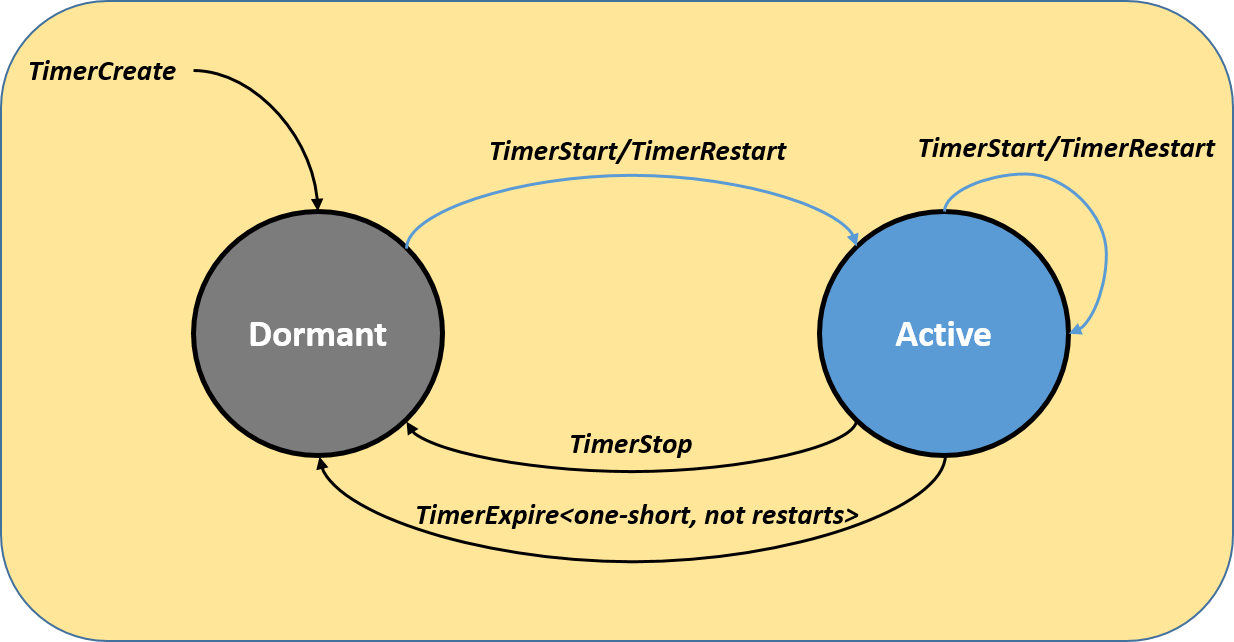Timer Management
- group OS_87x3e_Timer
-
Create and control software timer and timer callback functions.
The Timer Management function group allows to create, delete, and control software timers in the system. The software timers can be configured as one-short or periodic timers. When a timer expires, a callback function associated with the timer is executed.
Timers can be in the following two states:
Dormant The timer first enters Dormant or Inactive state when created. If a one-short timer expires but not restarts yet, or is stopped the timer will be tranformed from Active state into Dormant state.
Active The timer enters Active state If the timer starts or restarts. When expired, the callback function associcated with the timer will be executed.
